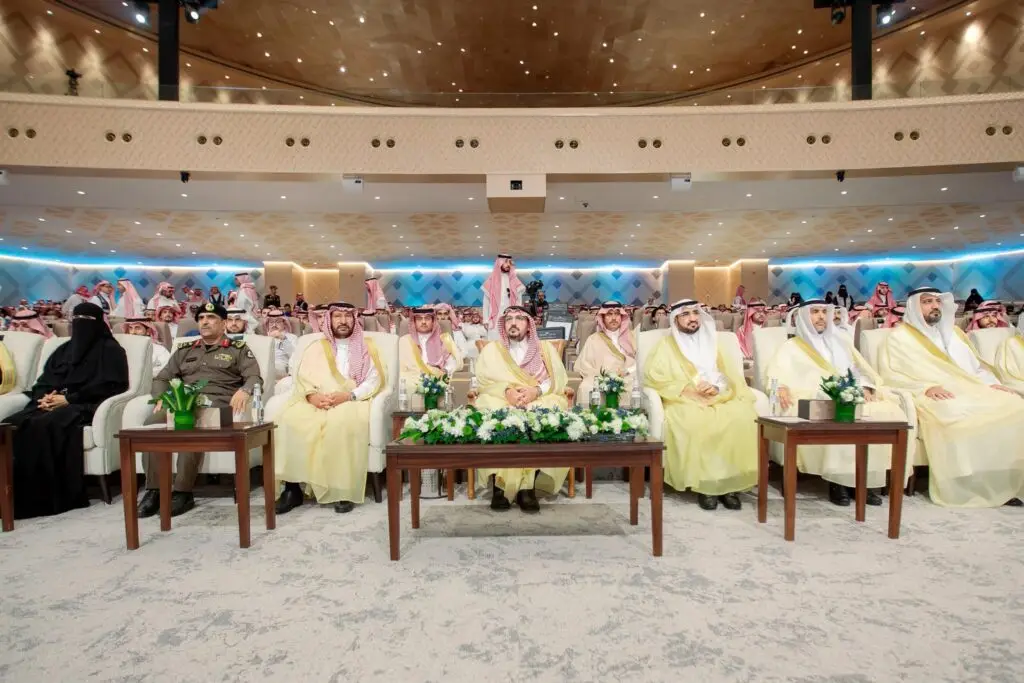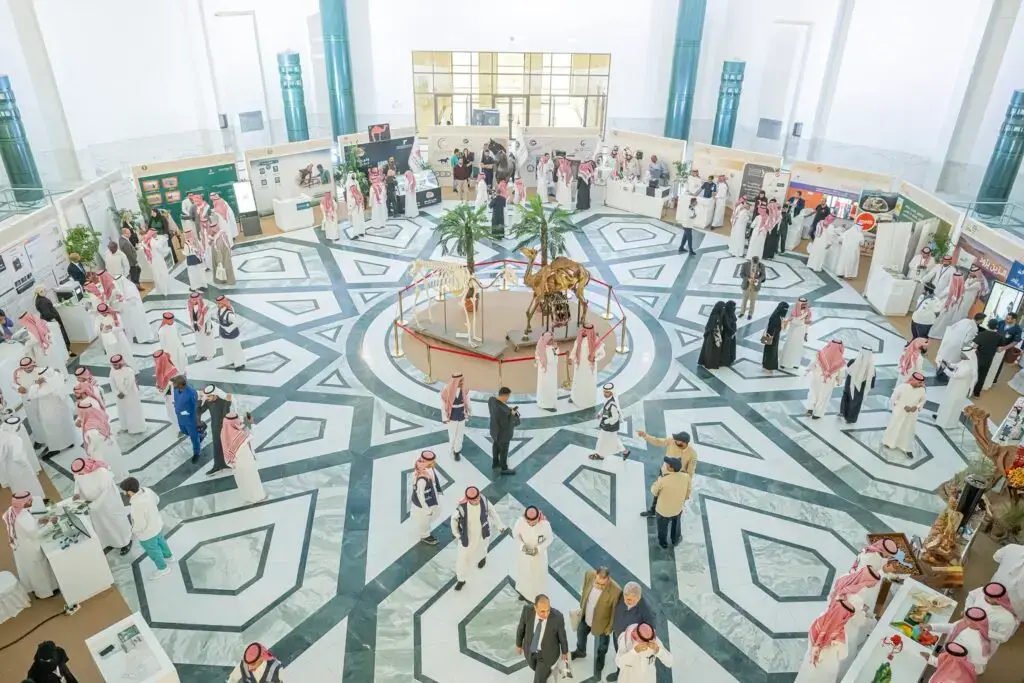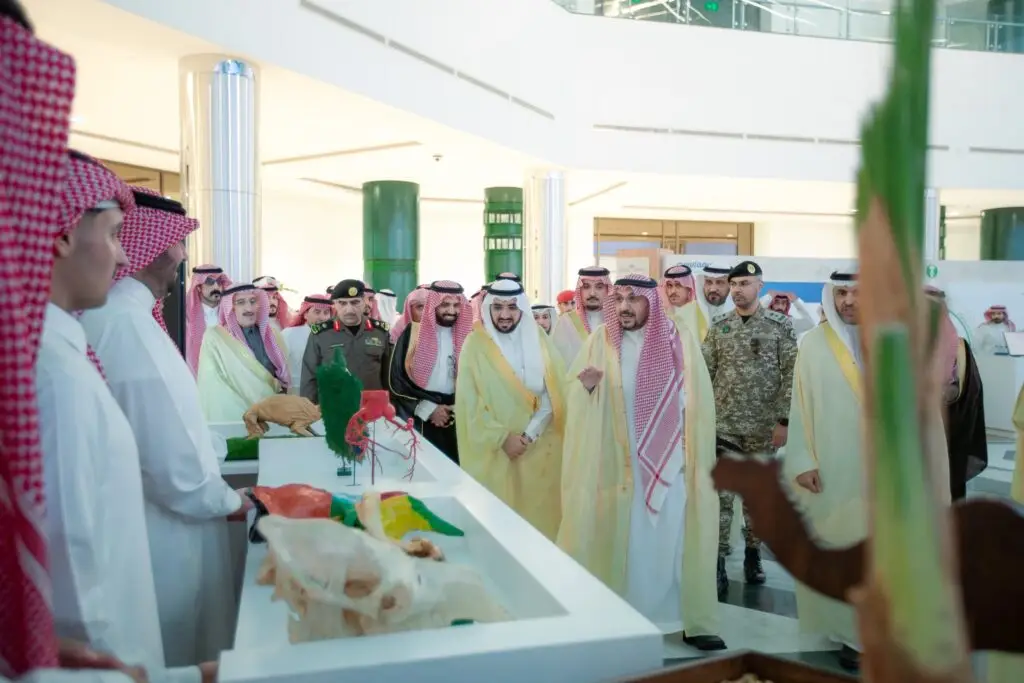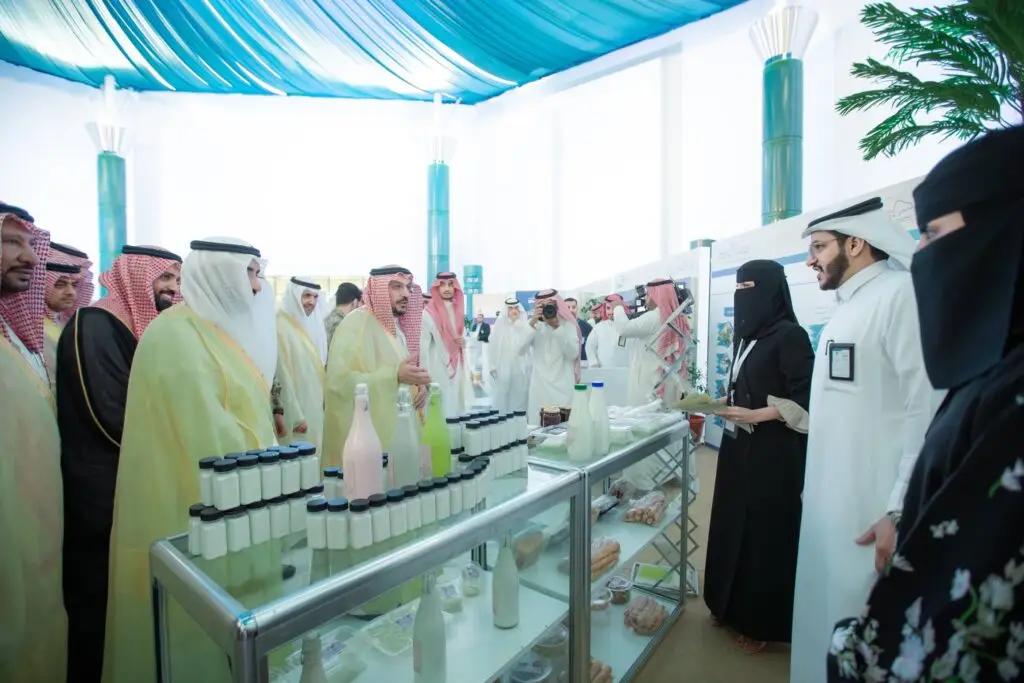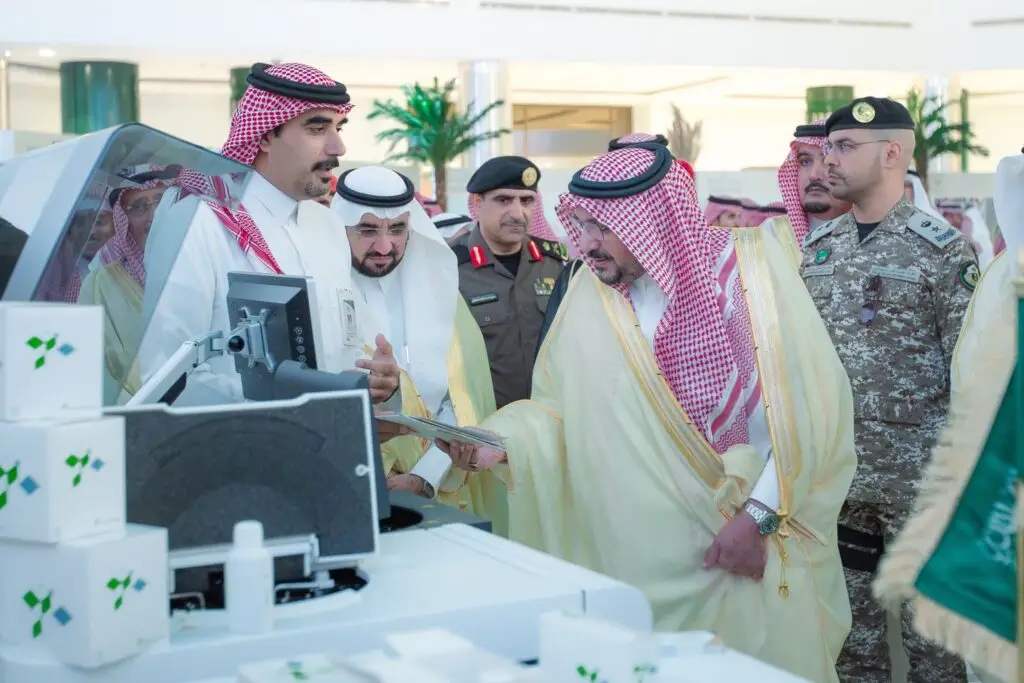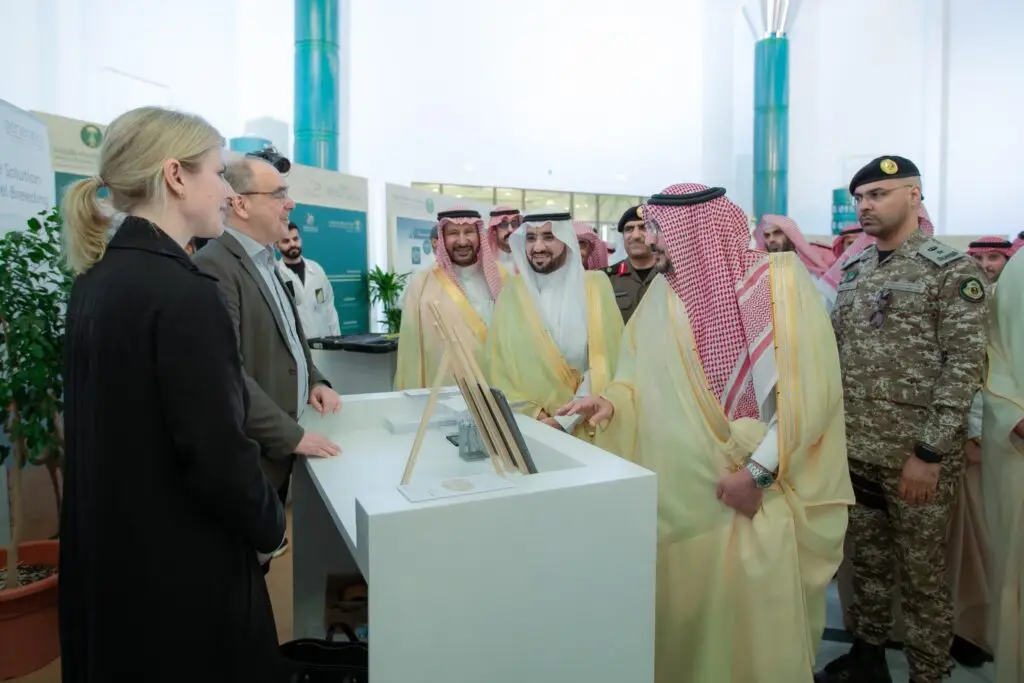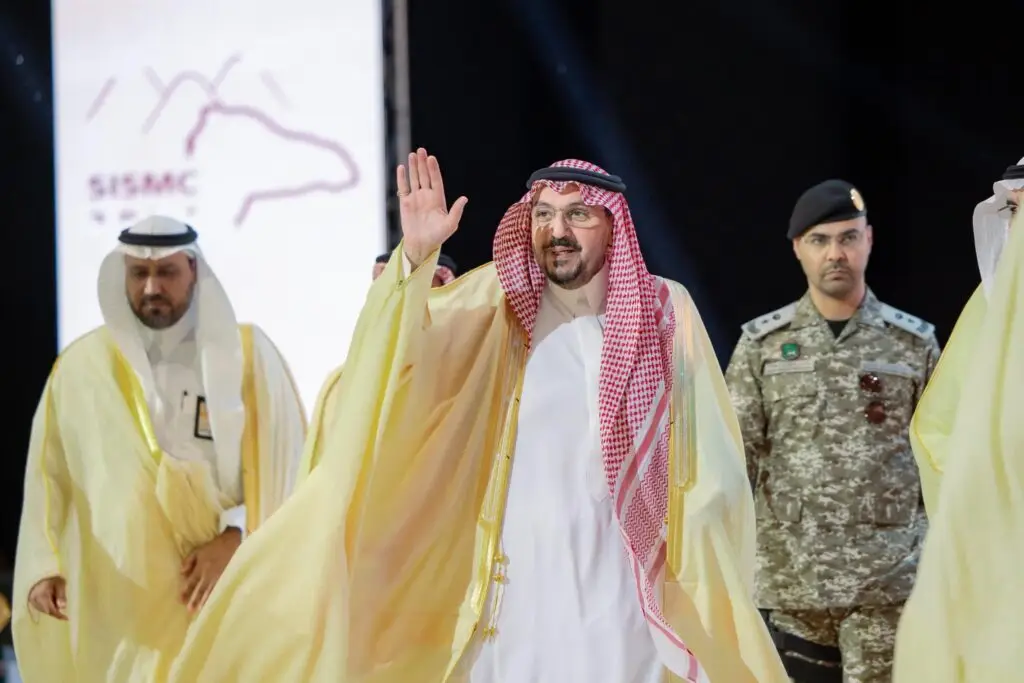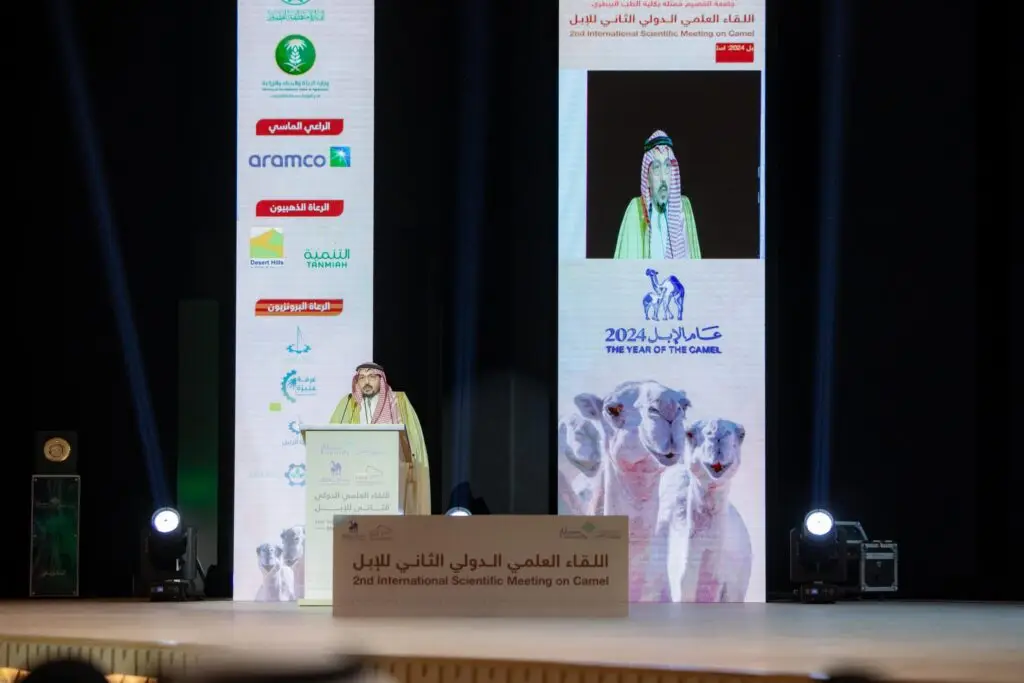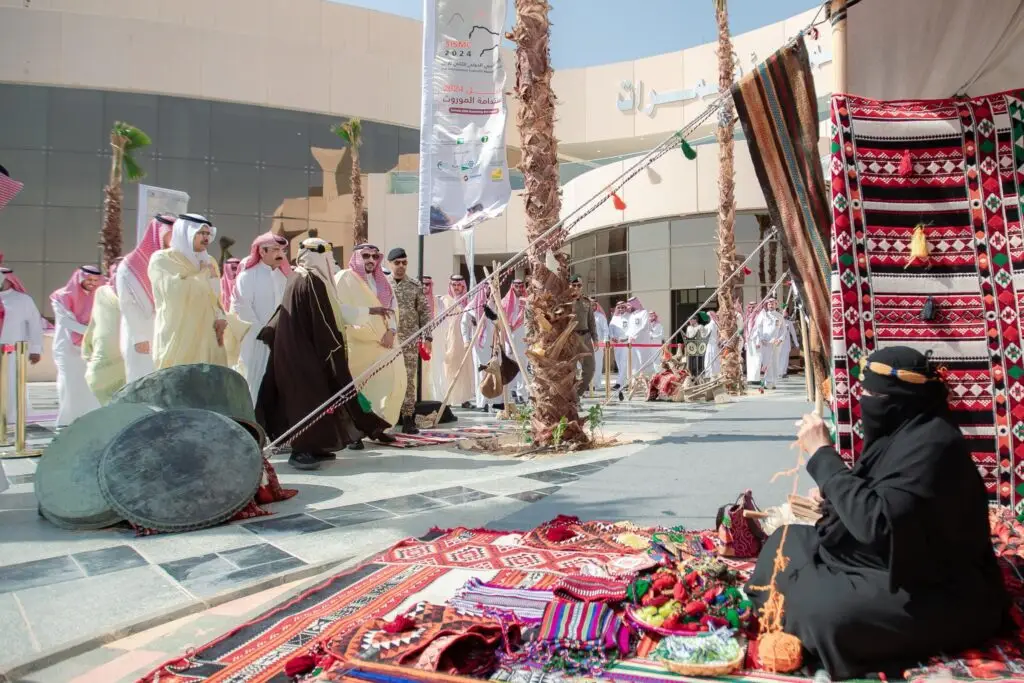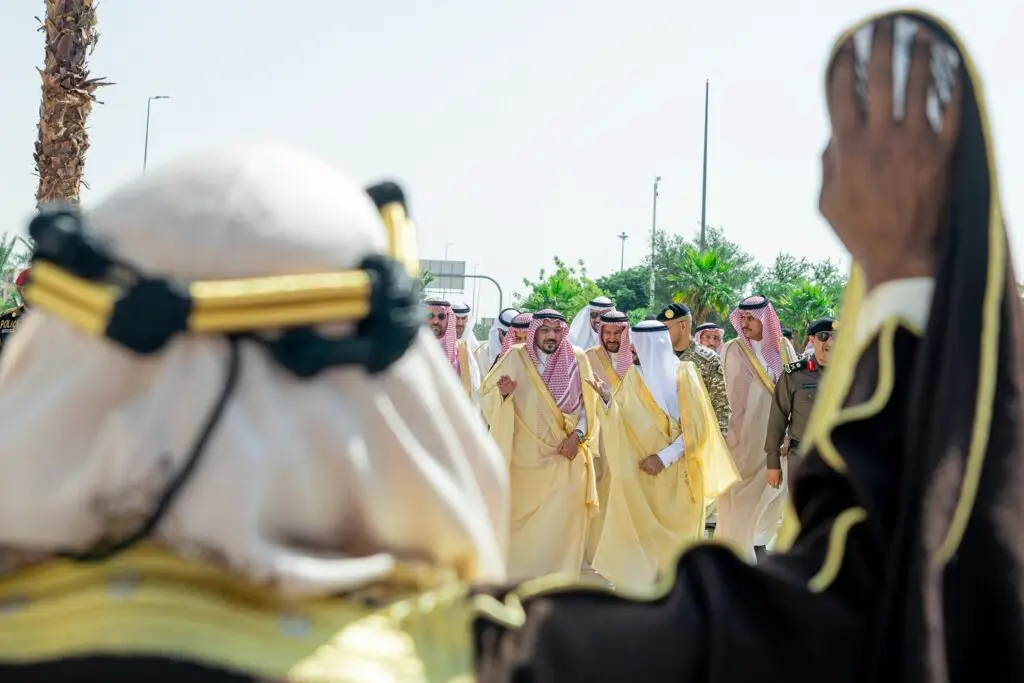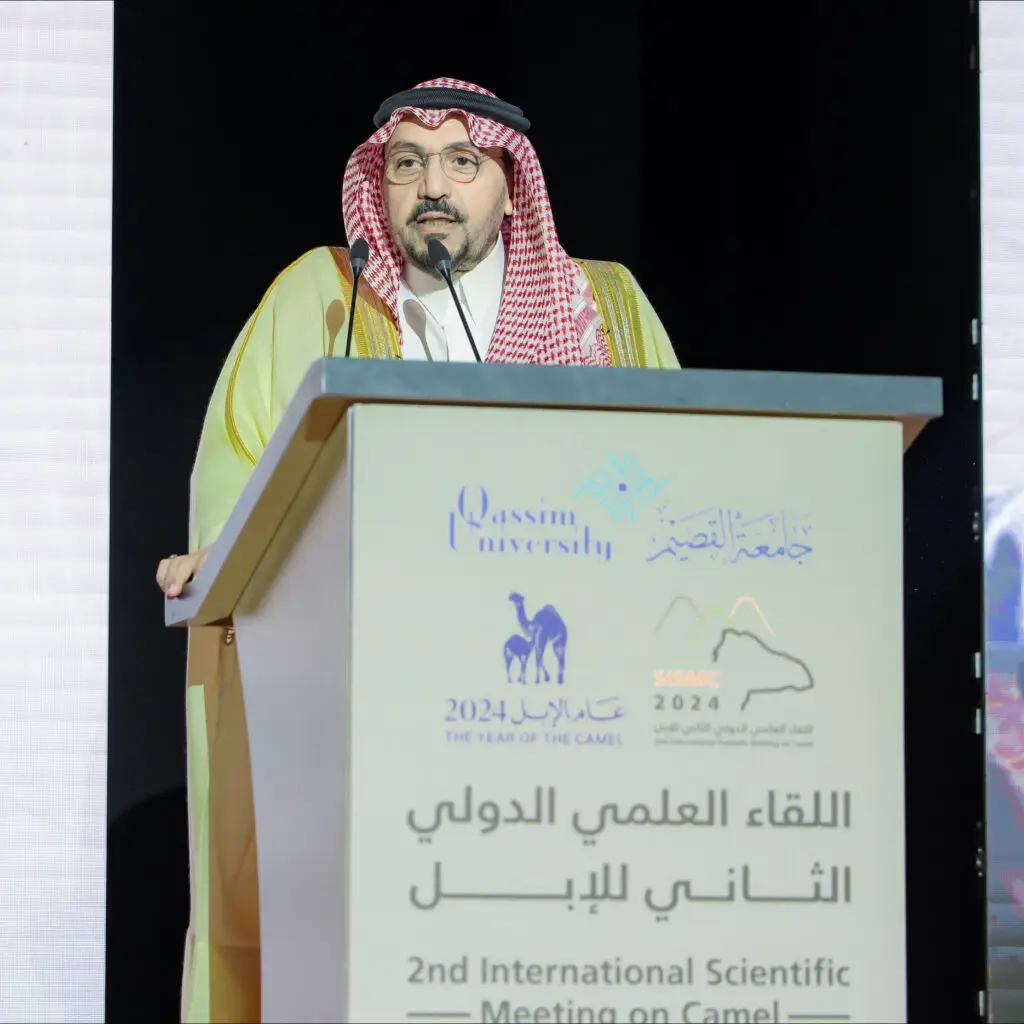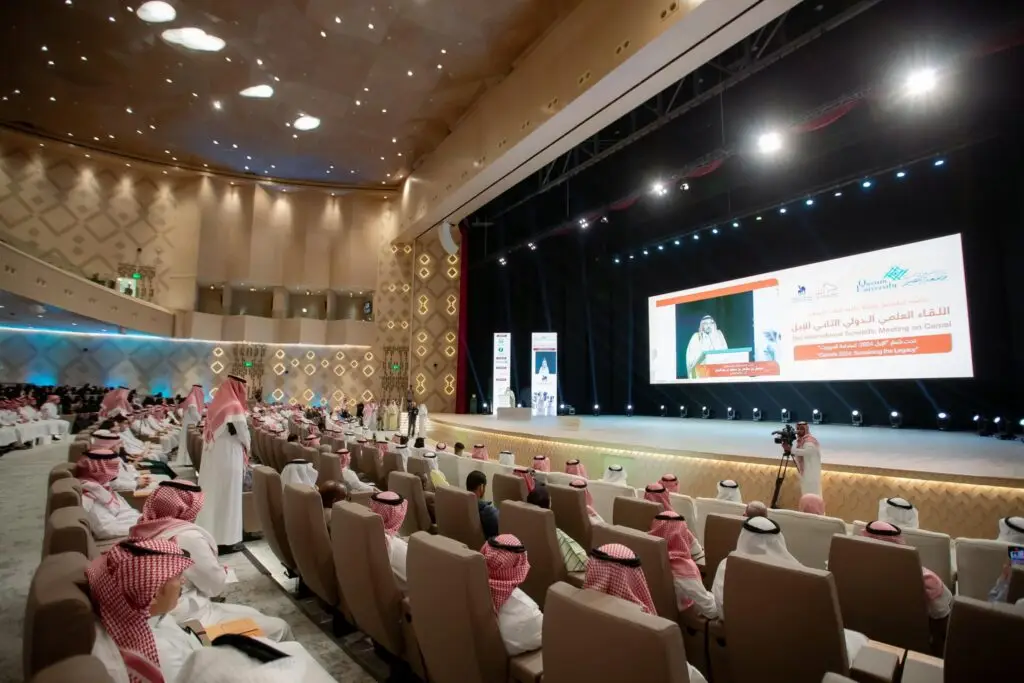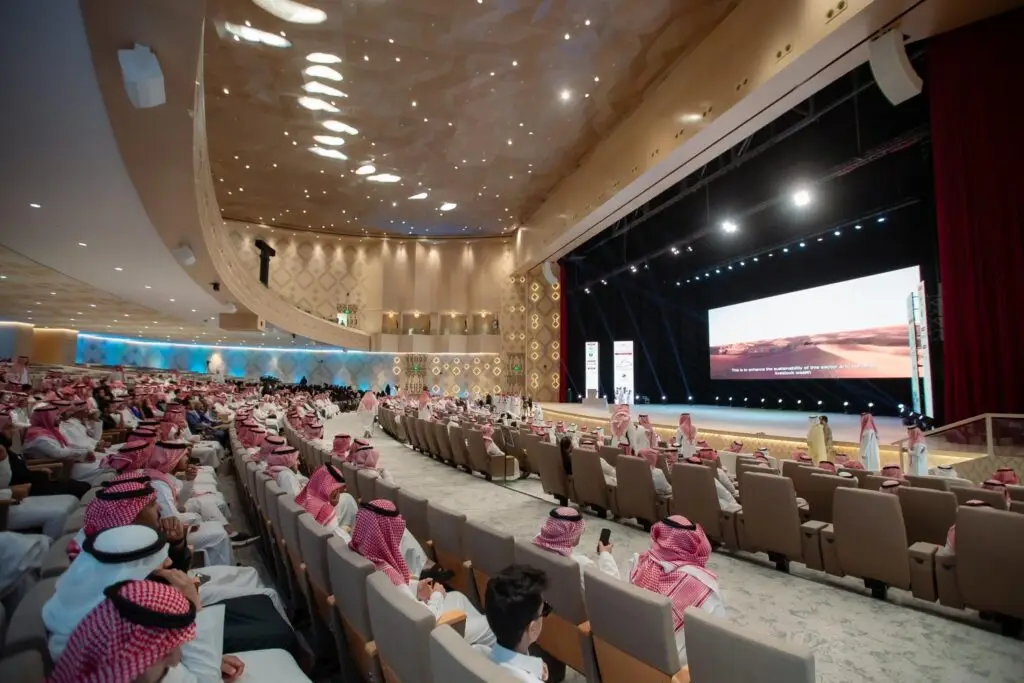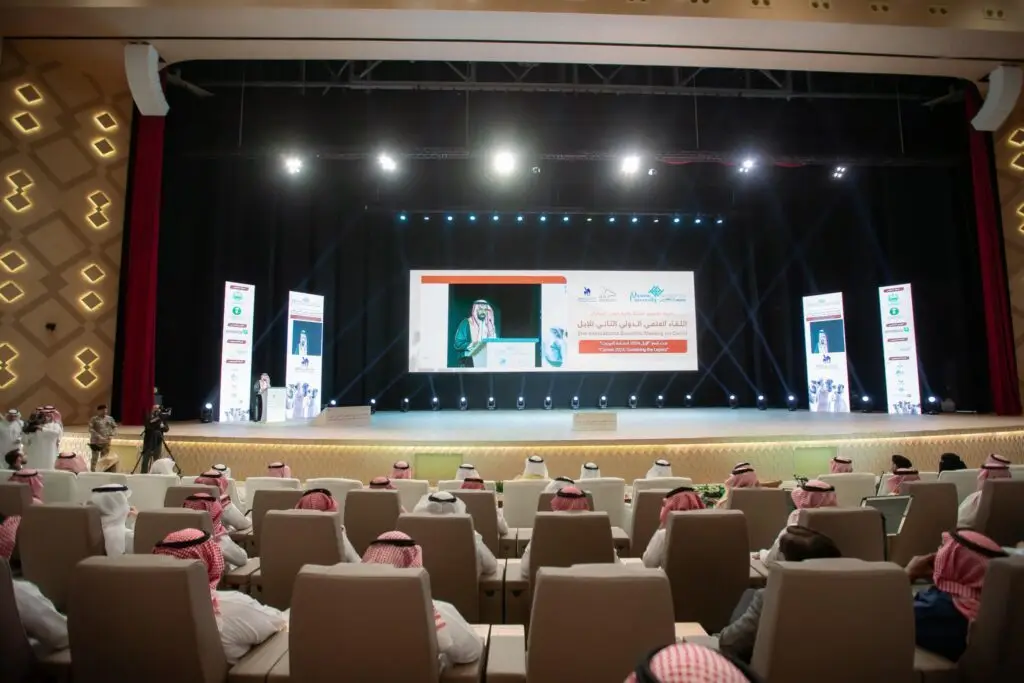His Royal Highness Prince Dr. Faisal bin Meshal bin Saud bin Abdulaziz, Emir of Qassim, sponsored the "Second International Scientific Meeting for Camels" under the slogan "Camels 2024: Sustainability of Heritage", organized by Qassim University, represented by the College of Veterinary Medicine, in conjunction with the Year of the Camel 2024, in partnership with the Emirate of Qassim and the branch of the Ministry of Environment, Water and Agriculture in Qassim, on Sunday, October 3, 2024, which lasts for two days, in the presence of His Excellency the President of the University, Prof. Dr. Mohammed bin Fahad Al-Sharekh, university vice presidents and heads of government agencies, with the participation of 20 local and international speakers; and elite specialists from 6 countries in the camel field at the conference center in the university city.
His Highness also witnessed the ceremony's paragraphs, starting with the Holy Quran and the Royal Salam, and watched a visual presentation on the Kingdom's interest in camels and the university's efforts, in addition to an introduction to the meeting in its second edition, which aims to introduce the latest scientific and research developments in the fields of camel health, diseases and economics locally and internationally, to contribute to the development of this important economic wealth and support the Kingdom's Vision 2030, as well as identify the nature and size of health issues facing investment in the camel sector, and develop scientific plans and recommendations for their treatment.
After that, H.H. the Emir of Qassim toured the accompanying exhibition, which contains 20 corners, including: A corner for the College of Veterinary Medicine, the College of Agriculture and Food, the University Veterinary Hospital, and a number of entities and companies participating in displaying products, veterinary devices and advisory publications in the field of camels and their care. He also toured the scientific poster exhibition with the participation of 53 scientific posters by faculty members and students interested in this field, and at the conclusion of the ceremony, His Highness honored the sponsors and partners of the organization.
During his patronage of the meeting, HH the Emir directed the establishment of a comprehensive scientific center for camel research, to be one of the first centers at the level of Saudi universities, and to become a reliable and specialized scientific reference in the field of camel research, focusing on studying various aspects related to camels, from the environmental, veterinary and health aspects, in addition to developing camel breeding practices, improving their breeds and limiting tampering with them, and providing advanced studies and research that keep pace with the aspirations of the wise leadership and contribute to achieving the Kingdom's Vision 2030, which pays great attention to national heritage and development of various sectors.
His Highness pointed out that the center will have close cooperation with a number of stakeholders, most notably: The Camel Club and the Ministry of Environment, Water and Agriculture, with the aim of enhancing national efforts in preserving the cultural and developmental heritage associated with camels, supporting farmers and breeders by providing them with the latest research and technologies, promoting scientific research in this field, and being a scientific beacon that serves future generations and supports the efforts to develop the camel sector.
His Highness the Emir of Qassim stressed that the university's launch of a postgraduate program to detect camel tampering will make this university a pioneer and a unique scientific center for camel research at the level of universities in the Kingdom of Saudi Arabia. He appreciated the university's efforts to hold this meeting, and recalled the past days when he attended the first meeting in 1427, noting that it was the first initiative of its kind at a time when there was no interest in camel science.
His Highness said: He asked Allah Almighty to grant them success in everything related to camel research and cooperation with all concerned parties, whether in the Camel Club or in the Ministry of Environment, Water and Agriculture, and all parties interested in this matter in order to serve this heritage on the occasion of the Year of the Camel, and to be, God willing, a great help to all those who are interested in camel affairs.
For his part, His Excellency the Dean of the College of Veterinary Medicine, Dr. Yousef Al-Saadi, Chairman of the Organizing Committee, stressed that the organization of this meeting comes within a series of scientific initiatives and activities at the university, based on its noble mission and strategic objectives to promote research and development, exchange knowledge among researchers, stimulate innovation, and build scientific networks between various researchers and scientific institutions, which enhances its contribution to the scientific community locally and internationally.
He added: Today, in the sessions of this meeting, we shed light on camels as an important heritage that appeals to the conscience; in order to develop and develop, understand what is new and unique, and come up with recommendations that contribute to the development of this field for the benefit of humanity, in response to the directives of our wise leadership, may Allah support them, and in light of the unlimited national support from the rulers of the country, may Allah protect them, and contribute to national development, in conjunction with the Year of the Camel 2024.
Al-Saadi explained: This meeting, which includes an elite group of scientists, experts and cadres working in the fields of camels with whom we meet to discuss and study, through 20 speakers and 53 scientific posters, also covers 6 main objectives and themes of the most important economic and social challenges facing the camel sector, distributed over eight scientific sessions in two days to discuss modern developments in the diagnosis of camel diseases, detecting tampering, modern techniques in camel reproduction, international, clinical and surgical interventions in camels, technology for the manufacture and safety of camel products, camel breeding and care and the social and economic challenges they face.
He added: One of the most prominent achievements of this meeting was the announcement of a postgraduate program concerned with detecting camel tampering and fraud, which also includes a scientific center specialized in detecting the manifestations of camel tampering and fraud that contributes to graduating specialists and qualifying them to detect the wrong practices to which this important heritage is exposed, and to practice the role of education and awareness in fighting this tampering. He stressed that this program and this center are unique achievements that distinguish the university internationally, as it is the first university ever to launch an academic program and a specialized scientific center concerned with combating camel tampering and adulteration, which have important economic and developmental dimensions.
Al-Saadi also extended his thanks and appreciation to His Highness the Emir of the region for his support and patronage of this forum, which comes under his guidance. He also thanked His Excellency the President of the University for his support and follow-up, the university vice presidents and all its entities, the organizational and scientific committees, the organization partners and sponsors, asking Allah Almighty to achieve this forum's goals and aspirations.
This meeting aims to crystallize a modern and future plan to increase the productivity of camels by identifying the latest research developments in the fields of fertility treatment, genetic improvement, camel nutrition, manufacturing and safety of camel products, in addition to identifying the results of research on the utilization of camels and their products and the possibility of using them in the diagnosis and treatment of human diseases, in addition to reviewing the economic and social aspects of camels, highlighting the role of camels as a popular and national heritage, and holding various exhibitions for companies and entities related to the needs of camels and their products.

